A U.S. Army lieutenant stationed at a frontier fort decides to battle his boredom constructively by holding up the stagecoach for a giggle. Things take a serious turn when the stage is held up for real. That’ll teach him.
Richard’s Folly
I’m going to lay all my cards on the table here: this movie is pretty dire. It’s old-fashioned in a bad way and has basically no suspense, it’s boring as heck and the hero is an unlikable little dweeb. It’s not so-bad-it’s-good, it’s so-bad-it’s-mildly-unpleasant.
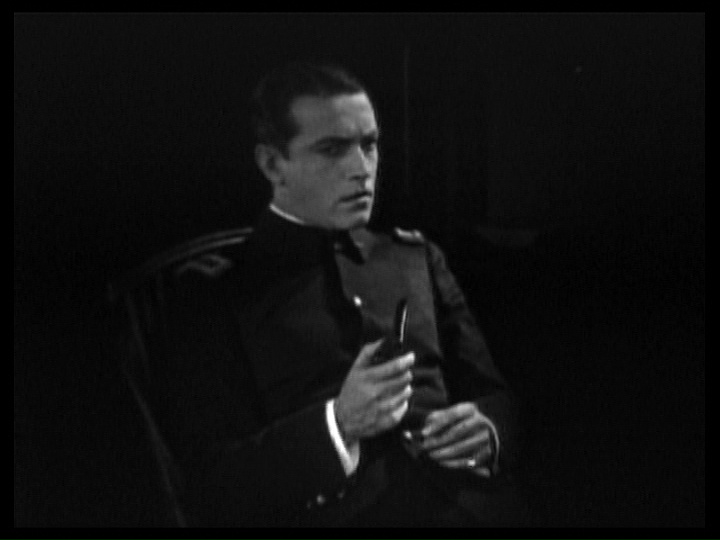
That being said, dissecting this sucker and understanding why it failed is pretty interesting, so if you want to come along with me to the autopsy, you’re more than welcome.
By the mid-1920s, Richard Barthelmess was following up his popularity in hits like Way Down East and Tol’able David with quality pictures made by Inspiration Pictures, the production company he co-founded. A sensitive performer who seemed to exist slightly outside of time, Barthelmess inhabited an interested middle ground between leading man and character actor and he needed productions with just the right balance of the normal and the eccentric to allow his talent to shine.
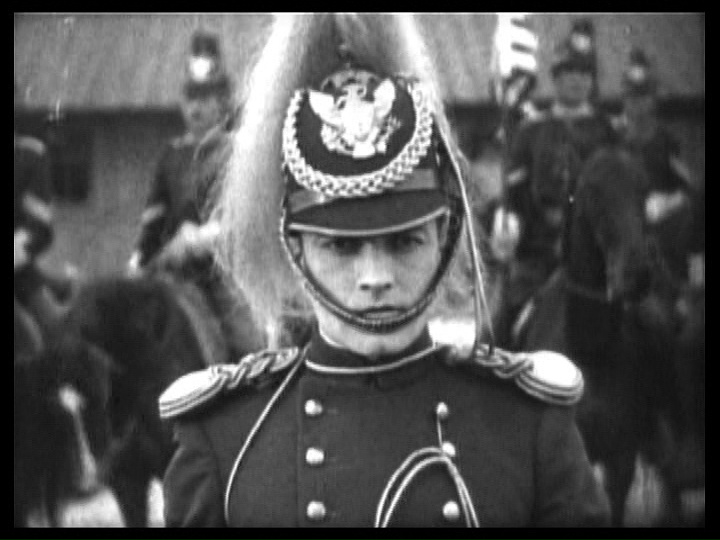
The Enchanted Cottage had captured that Tol’able David magic with its dark setup and lighter fantasy sequences but Barthelmess genre hopped pretty frequently and that, presumably, is how he landed in the middle of Ranson’s Folly. (By the way, some reference material has the typo “Ransom’s Folly.”)
Based on a 1902 novella by Richard Harding Davis, Ranson’s Folly tells the story of Lieutenant Ranson (Richard Barthelmess), an adrenaline junkie who is disappointed that a lull in the Sioux Wars has put a damper on his “exciting” military career. (In the novella, Ranson had been stationed in the Philippines and had enthusiastically killed people there but the movie moves the action back two decades, apparently in order to look more old fashioned. But it does seem a bit pointless given that it does nothing to change the plot. I had no idea there was such an aversion to khaki uniforms.
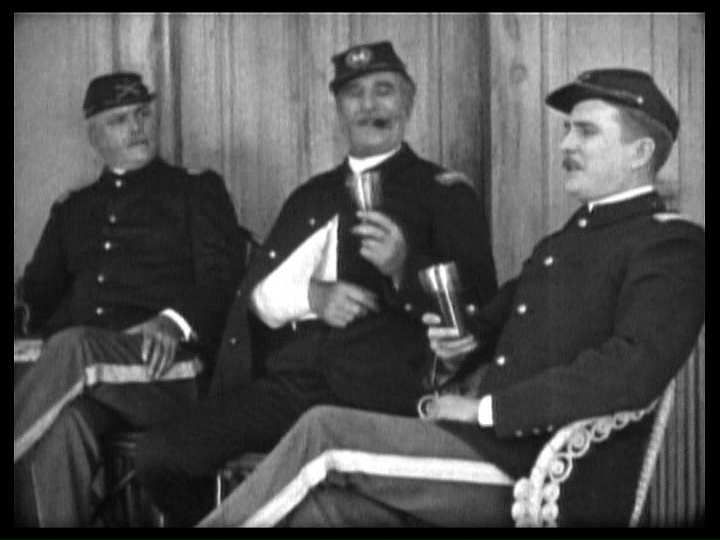
Anyway, Ranson is exceedingly disappointed to be stationed at for Crockett, which not only has ladies and picnics and teatime but also does not afford him any opportunities to kill the locals. Poor lamb. However, Cahill (Anders Randolf), the post trader, has a beautiful daughter named Mary (Dorothy Mackaill). Unfortunately, dating her is not quite as fun as shooting people trying to defend their homes. Sigh.
A fire breaks out at the fort and is about to ignite the explosives but Ranson disobeys a direct order and puts the fire out single-handed. The residents of Fort Crockett find him heroic and he is given a slap on the wrist for his disobedience but his thirst for adventure has not quelled. (In the novella, Ranson did not disobey but he did show unseemly enthusiasm for putting out a brush fire and his fellow officers wondered at his strange behavior, as well they should.)
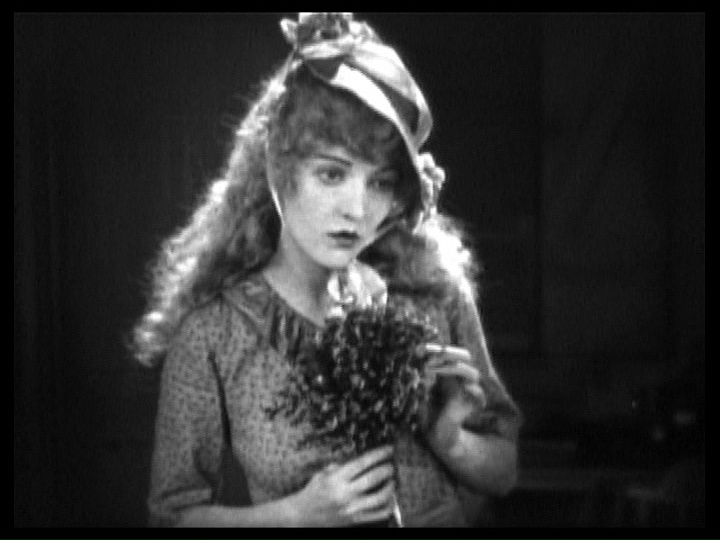
In the midst of all this, the only exciting event around Fort Crockett is the continued escapades of the Red Rider, a bandit who robs stage coaches and has managed to evade capture due to his cunning. When Ranson hears of this, he finally comes up with an idea for excitement: two ladies from the east are due at the fort. He will dress up as the Red Rider and rob their coach himself! What laughs! What a lark! Of course, things go very wrong when a second robbery occurs at the same time and the real Red Rider steals the payroll and shoots the paymaster…
Now, this is where we get to the heart of the original story’s flaws: the author obviously fell in love with the concept of a fake robbery and a real one occurring simultaneously and didn’t stop to think about how silly Ranson’s motives were. I mean, if you’re a violent little adrenaline addict with legal enforcement powers and you hear that a bandit is at large, it strikes me that chasing down the baddie would be a lot more interesting than faking the robbery of two eastern ladies.
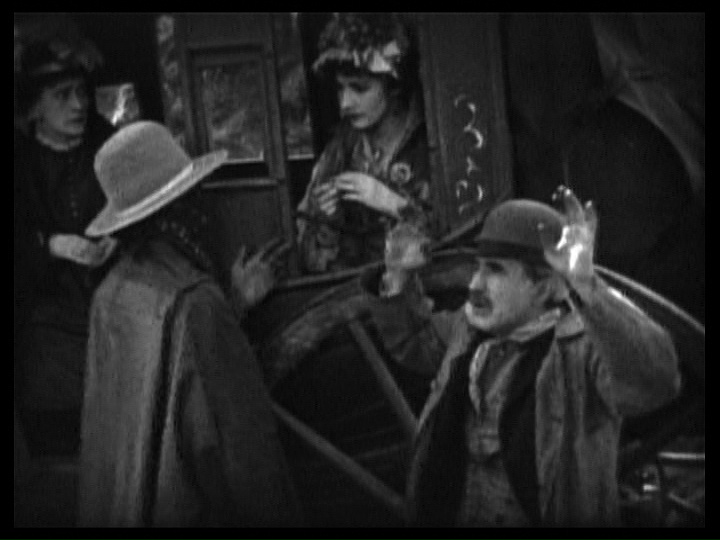
Not only interesting for the character but far, far more interesting for the audience. The rest of the picture is taken up with an interminable courtroom scene in which Ranson must prove he meant one robbery but not another. I mean, sure, we could have the cavalry officers sit in a large room and holler “OBJECTION!” at one another or we could have them chase down a wily stickup artist. Same difference, right?
Ranson is exactly the kind of officer to get himself and his men killed. And if he didn’t commit any war crimes in the name of excitement, I would probably faint from the shock. While the novella acknowledges that his behavior is, perhaps, not everyone’s cup of tea, the film adaptation treats this overgrown Peck’s Bad Boy as some kind of charming creature. Nothing in the text actually supports this reaction, especially since Ranson’s fellow officers seem to be enjoying not having to kill people.
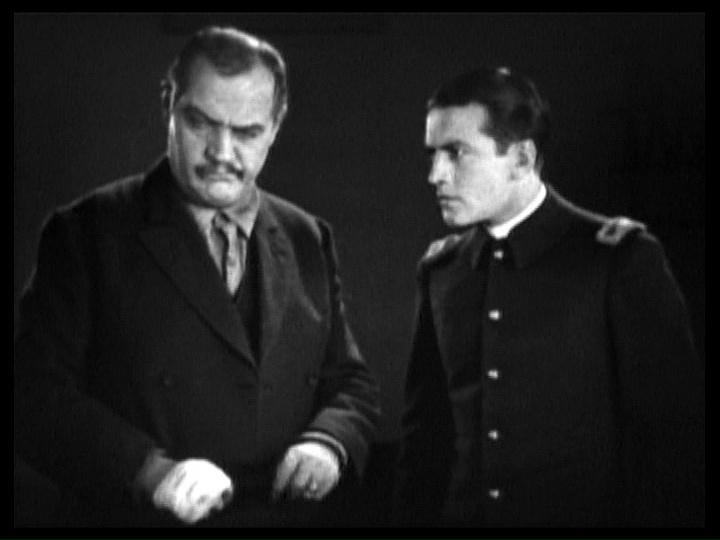
Richard Barthelmess does what he can but he can’t seem to get a handle on Ranson’s hyperactivity. He comes off as too serene for the job when a Douglas Fairbanks level of energy is required. (See Wild and Woolly for comparison.) Barthelmess could brood with the best of them but zippiness, especially homicidal zippiness, seems to be beyond his reach. And as this was his production company, he does bear some blame as one of the bosses.
Reviews of the time voiced similar complaints. Criticism in Motion Picture Classic hits the nail squarely on the head: “He conducts himself heroically enough, but there are no occasions for him to display any emotional fire… Barthelmess doesn’t need these old-fashioned stories with their old-fashioned heroics. He shines best in the unusual characterizations.” Pictures went even further: “We had to keep reminding ourselves that Dick Barthelmess was supposed to be a daredevil. He looked so mild and well-behaved that at each reckless exploit we raised our eyebrows in surprise until we remembered.”
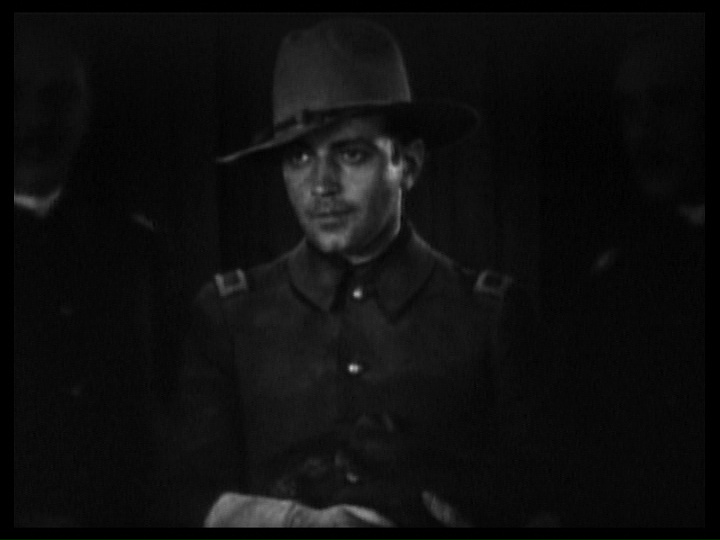
That is exactly the case. And the worst of it is that the novella actually provided a far more viable path forward with the character of Mary Cahill. As the daughter of the post trader, Mary is not allowed to socialize with the wives of the officers, heavens no! But as her father hosts the officers’ mess, she needs to be awarded some level of respect and so she is an honorary man, a civilian pal. This works well until she falls for Ranson but could an officer ever marry a woman in her position?
Old fashioned, to be sure, but at least it’s something that resembles human emotion and it would have been an opportunity to poke a little fun at the stiff social regulations of the 19th century. Alas, this is all left by the wayside and the charming Dorothy Mackaill is given very little to do. Nobody seems to mind at all that Ranson is pursuing her. The title cards mention issues with the match but the behavior on the screen does not support this. There are no raised eyebrows or sarcastic glances in the couple’s direction.
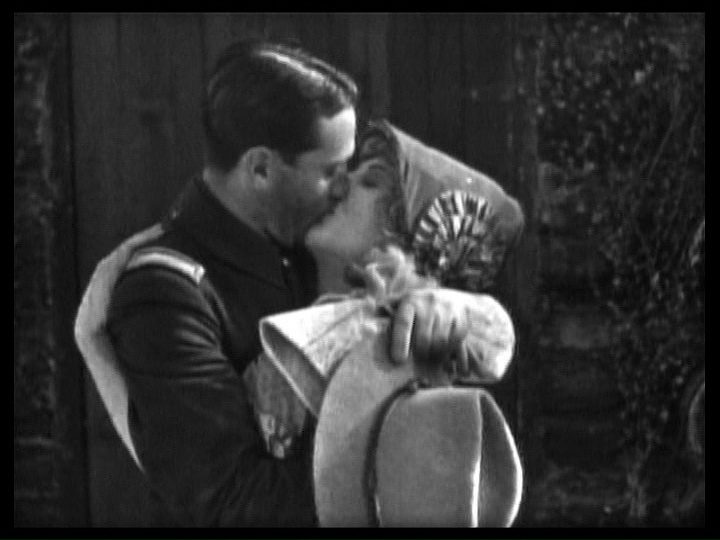
We can lay much of the blame squarely on the shoulders of director Sidney Olcott, who directed 1908 films like it was 1912 and 1926 films like it was 1912. His dull, workaday style manages to drain any possible suspense that was left in these hoary moments. A bit of hokum, tongue-in-cheek humor or even all-out farce might have similarly saved the thing but no, it’s played straight.
As stated before, Barthelmess and Mackaill were fine actors and they managed to do a bit with the story but there’s a limit to any performer’s ability to rise above a dull story. I will say, however, that Barthelmess does look quite becoming in his uniform, especially when he’s a bit stubbly. Hey, I take what I can get when met with a film this dishwatery.
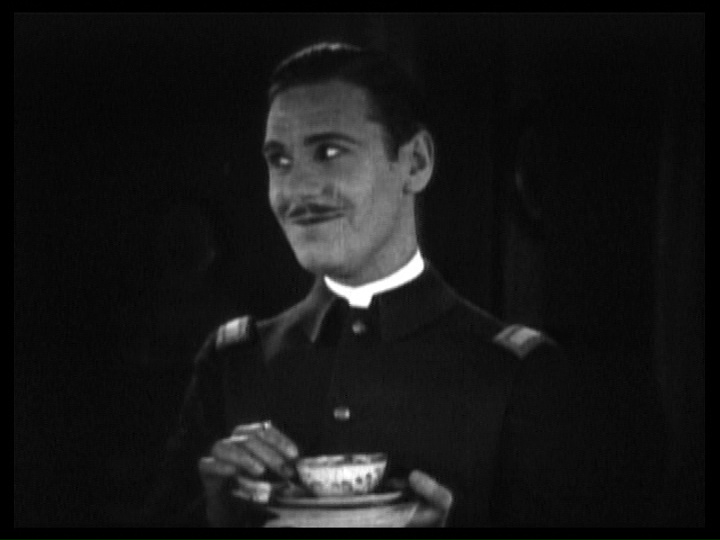
There was only one way Ranson’s Folly would have worked without a major story overhaul and that would have been to keep things moving at such a furious clip that the audience wouldn’t have time to notice the story’s lack of logic. This is not time to sit around and smell the daisies but that is exactly what Olcott does. And if they wanted a slower pace, more emphasis on the Barthelmess/Mackaill romance would have been welcome. Plus, with the officers and their wives being shocked at the match, it would have added a double meaning to the film’s title.
Finally, Ranson is introduced holding a piglet that he found along the way. Everyone has a good laugh and the piglet is never mentioned again. Now, I consider myself pretty tolerant of older films but if you promise me a piglet and then don’t deliver, I am pretty annoyed. Either give me proper piglet representation or leave it out entirely. Sheesh!
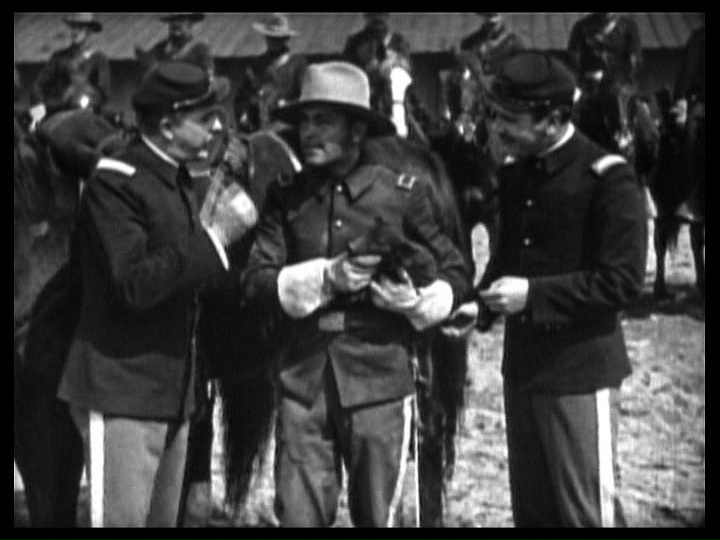
But that’s the problem with the whole film, isn’t it? Snatching dullness from the gaping jaws of excitement. Ranson’s Folly is strictly in the “if you must” category. There are far better showcases for Barthelmess available on home video now and I suggest you seek those out instead.
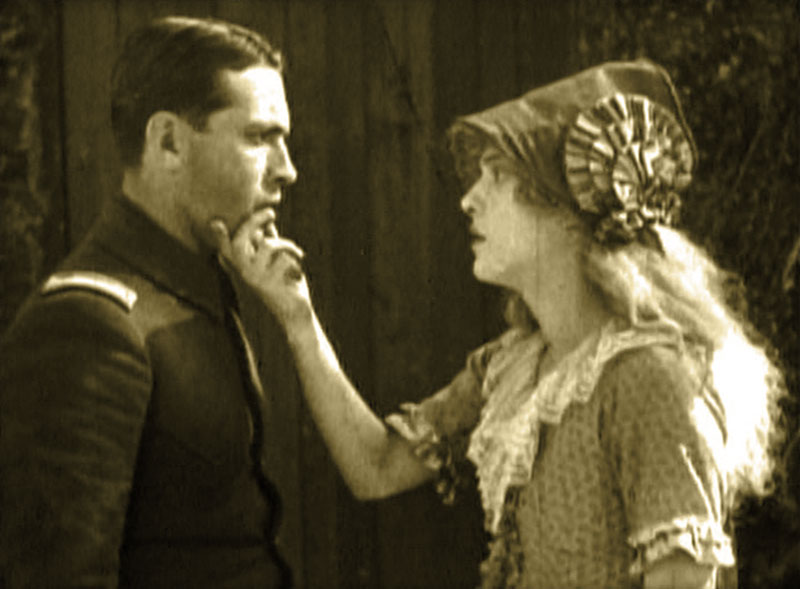
I’m a completist, so I’d never pass up a chance to catch a Barthelmess film. But I’m glad to learn exactly what was wrong with this one, which had me wondering when I saw it a few months ago, ‘why aren’t I enjoying watching my adored Richard B.?’
Yeah, like I said, he tries hard but the part just doesn’t suit him. If they had focused more on the mismatched romance, it might have done better. Barthelmess is always good when he’s fighting for his lady love.